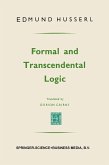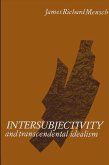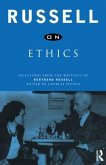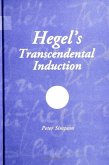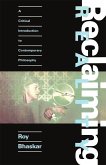- Broschiertes Buch
- Merkliste
- Auf die Merkliste
- Bewerten Bewerten
- Teilen
- Produkt teilen
- Produkterinnerung
- Produkterinnerung
In this work, a distinguished international group of philosophers offers critical assessments of eminent philosopher J. N. Mohanty's work on phenomenology and Indian philosophy. The concluding chapter by Mohanty responds to the critics and contains his assessment of his own philosophical position.
Andere Kunden interessierten sich auch für
![Husserl's Transcendental Phenomenology Husserl's Transcendental Phenomenology]() Andrea StaitiHusserl's Transcendental Phenomenology39,99 €
Andrea StaitiHusserl's Transcendental Phenomenology39,99 €![Formal and transcendental logic Formal and transcendental logic]() Edmund HusserlFormal and transcendental logic113,99 €
Edmund HusserlFormal and transcendental logic113,99 €![Intersubjectivity and Transcendental Idealism Intersubjectivity and Transcendental Idealism]() James R MenschIntersubjectivity and Transcendental Idealism43,99 €
James R MenschIntersubjectivity and Transcendental Idealism43,99 €![Russell on Ethics Russell on Ethics]() Bertrand RussellRussell on Ethics62,99 €
Bertrand RussellRussell on Ethics62,99 €![Hegel's Transcendental Induction Hegel's Transcendental Induction]() Peter SimpsonHegel's Transcendental Induction39,99 €
Peter SimpsonHegel's Transcendental Induction39,99 €![Transcendental Heidegger Transcendental Heidegger]() Transcendental Heidegger32,99 €
Transcendental Heidegger32,99 €![Reclaiming Reality Reclaiming Reality]() Roy BhaskarReclaiming Reality28,99 €
Roy BhaskarReclaiming Reality28,99 €-
-
-
In this work, a distinguished international group of philosophers offers critical assessments of eminent philosopher J. N. Mohanty's work on phenomenology and Indian philosophy. The concluding chapter by Mohanty responds to the critics and contains his assessment of his own philosophical position.
Hinweis: Dieser Artikel kann nur an eine deutsche Lieferadresse ausgeliefert werden.
Hinweis: Dieser Artikel kann nur an eine deutsche Lieferadresse ausgeliefert werden.
Produktdetails
- Produktdetails
- Verlag: Globe Pequot Publishing Group Inc/Bloomsbury
- Seitenzahl: 304
- Erscheinungstermin: 16. August 2000
- Englisch
- Abmessung: 226mm x 147mm x 15mm
- Gewicht: 390g
- ISBN-13: 9780742508200
- ISBN-10: 074250820X
- Artikelnr.: 21844604
- Herstellerkennzeichnung
- Libri GmbH
- Europaallee 1
- 36244 Bad Hersfeld
- 06621 890
- Verlag: Globe Pequot Publishing Group Inc/Bloomsbury
- Seitenzahl: 304
- Erscheinungstermin: 16. August 2000
- Englisch
- Abmessung: 226mm x 147mm x 15mm
- Gewicht: 390g
- ISBN-13: 9780742508200
- ISBN-10: 074250820X
- Artikelnr.: 21844604
- Herstellerkennzeichnung
- Libri GmbH
- Europaallee 1
- 36244 Bad Hersfeld
- 06621 890
By Bina Gupta - Contributions by Purushottama Bilimoria; Arindam Chakrabarti; David Carr; Eliot Deutsch; Lester Embree; Amedeo Giorgi; Gereon Kopf; Rudolph A. Makkreel; Joseph Margolis; J N. Mohanty; Günther Patzig; Stephen Philips; Tom Rockmore; Christin
Part 1 1: Is the Empirical versus Transcendental Distinction Spurious?
Chapter 2 1: Some Difficulties for Husserlian Phenomenology by Joseph
Margolis Chapter 3 2: Essentialism, Phenomenology, and Historical Cognition
by Tom Rockmore Chapter 4 3: The Similarities and Differences between
Descriptive and Interpretative Methods in Scientific Phenomenological
Psychology by Amedeo Giorgi Chapter 5 4: Hands by Donn Welton Chapter 6 5:
Logic and Quantum Physics: Some Simple Reflections by Günther Patzig g Part
7 2: Transcendental Phenomenology Revisited Chapter 8 6: Empirical and
Transcendental Subjectivity: An Enigmatic Relation? by Christina Schües
Chapter 9 7: Toward Transcendental Relativism: Reading Buddhist Non-Dualism
as Phenomenology by Gereon Kopf Chapter 10 8: Heidegger and Transcendental
Philosophy by David Carr Chapter 11 9: Transcendental Transitions by Rudolf
A. Makkreel Chapter 12 10: How is Transcendental Philosophy - of Mind and
World - Possible? by David Woodruff Smith Chapter 13 11: Utter
Unreflectiveness by Lester Embree Part 14 3: Understanding and Knowing from
the Indian Perspective Chapter 15 12: Is Understanding Teachable? by
Arindam Chakrabarti Chapter 16 13: J.N. Mohanty's Critique of Word as a
Means of Knowing and "Authorless Tradition" by Purushottama Bilimoria
Chapter 17 14: Nyaya Realism, Buddhist Critique by Mark Siderits Part 18 4:
The Possibility of Global Philosophy: Some Reflections Chapter 19 15: The
Advance of Indian Philosophy in the Works of J. N. Mohanty by Stephen
Phillips Chapter 20 16: Rationality and Tradition(s) by Eliot Deutsch
Chapter 21 17: My Philosophical Position/ Response to My Critics by J.N.
Mohanty
Chapter 2 1: Some Difficulties for Husserlian Phenomenology by Joseph
Margolis Chapter 3 2: Essentialism, Phenomenology, and Historical Cognition
by Tom Rockmore Chapter 4 3: The Similarities and Differences between
Descriptive and Interpretative Methods in Scientific Phenomenological
Psychology by Amedeo Giorgi Chapter 5 4: Hands by Donn Welton Chapter 6 5:
Logic and Quantum Physics: Some Simple Reflections by Günther Patzig g Part
7 2: Transcendental Phenomenology Revisited Chapter 8 6: Empirical and
Transcendental Subjectivity: An Enigmatic Relation? by Christina Schües
Chapter 9 7: Toward Transcendental Relativism: Reading Buddhist Non-Dualism
as Phenomenology by Gereon Kopf Chapter 10 8: Heidegger and Transcendental
Philosophy by David Carr Chapter 11 9: Transcendental Transitions by Rudolf
A. Makkreel Chapter 12 10: How is Transcendental Philosophy - of Mind and
World - Possible? by David Woodruff Smith Chapter 13 11: Utter
Unreflectiveness by Lester Embree Part 14 3: Understanding and Knowing from
the Indian Perspective Chapter 15 12: Is Understanding Teachable? by
Arindam Chakrabarti Chapter 16 13: J.N. Mohanty's Critique of Word as a
Means of Knowing and "Authorless Tradition" by Purushottama Bilimoria
Chapter 17 14: Nyaya Realism, Buddhist Critique by Mark Siderits Part 18 4:
The Possibility of Global Philosophy: Some Reflections Chapter 19 15: The
Advance of Indian Philosophy in the Works of J. N. Mohanty by Stephen
Phillips Chapter 20 16: Rationality and Tradition(s) by Eliot Deutsch
Chapter 21 17: My Philosophical Position/ Response to My Critics by J.N.
Mohanty
Part 1 1: Is the Empirical versus Transcendental Distinction Spurious?
Chapter 2 1: Some Difficulties for Husserlian Phenomenology by Joseph
Margolis Chapter 3 2: Essentialism, Phenomenology, and Historical Cognition
by Tom Rockmore Chapter 4 3: The Similarities and Differences between
Descriptive and Interpretative Methods in Scientific Phenomenological
Psychology by Amedeo Giorgi Chapter 5 4: Hands by Donn Welton Chapter 6 5:
Logic and Quantum Physics: Some Simple Reflections by Günther Patzig g Part
7 2: Transcendental Phenomenology Revisited Chapter 8 6: Empirical and
Transcendental Subjectivity: An Enigmatic Relation? by Christina Schües
Chapter 9 7: Toward Transcendental Relativism: Reading Buddhist Non-Dualism
as Phenomenology by Gereon Kopf Chapter 10 8: Heidegger and Transcendental
Philosophy by David Carr Chapter 11 9: Transcendental Transitions by Rudolf
A. Makkreel Chapter 12 10: How is Transcendental Philosophy - of Mind and
World - Possible? by David Woodruff Smith Chapter 13 11: Utter
Unreflectiveness by Lester Embree Part 14 3: Understanding and Knowing from
the Indian Perspective Chapter 15 12: Is Understanding Teachable? by
Arindam Chakrabarti Chapter 16 13: J.N. Mohanty's Critique of Word as a
Means of Knowing and "Authorless Tradition" by Purushottama Bilimoria
Chapter 17 14: Nyaya Realism, Buddhist Critique by Mark Siderits Part 18 4:
The Possibility of Global Philosophy: Some Reflections Chapter 19 15: The
Advance of Indian Philosophy in the Works of J. N. Mohanty by Stephen
Phillips Chapter 20 16: Rationality and Tradition(s) by Eliot Deutsch
Chapter 21 17: My Philosophical Position/ Response to My Critics by J.N.
Mohanty
Chapter 2 1: Some Difficulties for Husserlian Phenomenology by Joseph
Margolis Chapter 3 2: Essentialism, Phenomenology, and Historical Cognition
by Tom Rockmore Chapter 4 3: The Similarities and Differences between
Descriptive and Interpretative Methods in Scientific Phenomenological
Psychology by Amedeo Giorgi Chapter 5 4: Hands by Donn Welton Chapter 6 5:
Logic and Quantum Physics: Some Simple Reflections by Günther Patzig g Part
7 2: Transcendental Phenomenology Revisited Chapter 8 6: Empirical and
Transcendental Subjectivity: An Enigmatic Relation? by Christina Schües
Chapter 9 7: Toward Transcendental Relativism: Reading Buddhist Non-Dualism
as Phenomenology by Gereon Kopf Chapter 10 8: Heidegger and Transcendental
Philosophy by David Carr Chapter 11 9: Transcendental Transitions by Rudolf
A. Makkreel Chapter 12 10: How is Transcendental Philosophy - of Mind and
World - Possible? by David Woodruff Smith Chapter 13 11: Utter
Unreflectiveness by Lester Embree Part 14 3: Understanding and Knowing from
the Indian Perspective Chapter 15 12: Is Understanding Teachable? by
Arindam Chakrabarti Chapter 16 13: J.N. Mohanty's Critique of Word as a
Means of Knowing and "Authorless Tradition" by Purushottama Bilimoria
Chapter 17 14: Nyaya Realism, Buddhist Critique by Mark Siderits Part 18 4:
The Possibility of Global Philosophy: Some Reflections Chapter 19 15: The
Advance of Indian Philosophy in the Works of J. N. Mohanty by Stephen
Phillips Chapter 20 16: Rationality and Tradition(s) by Eliot Deutsch
Chapter 21 17: My Philosophical Position/ Response to My Critics by J.N.
Mohanty



